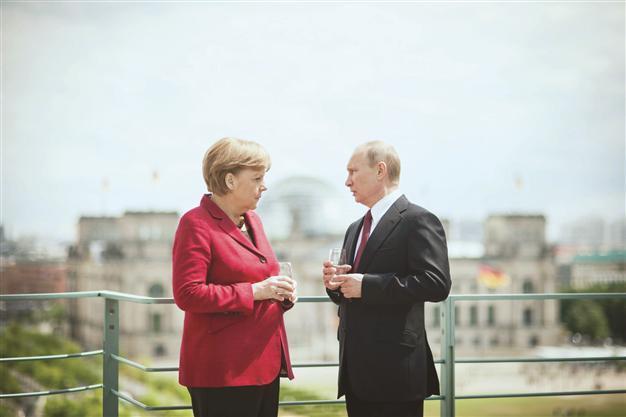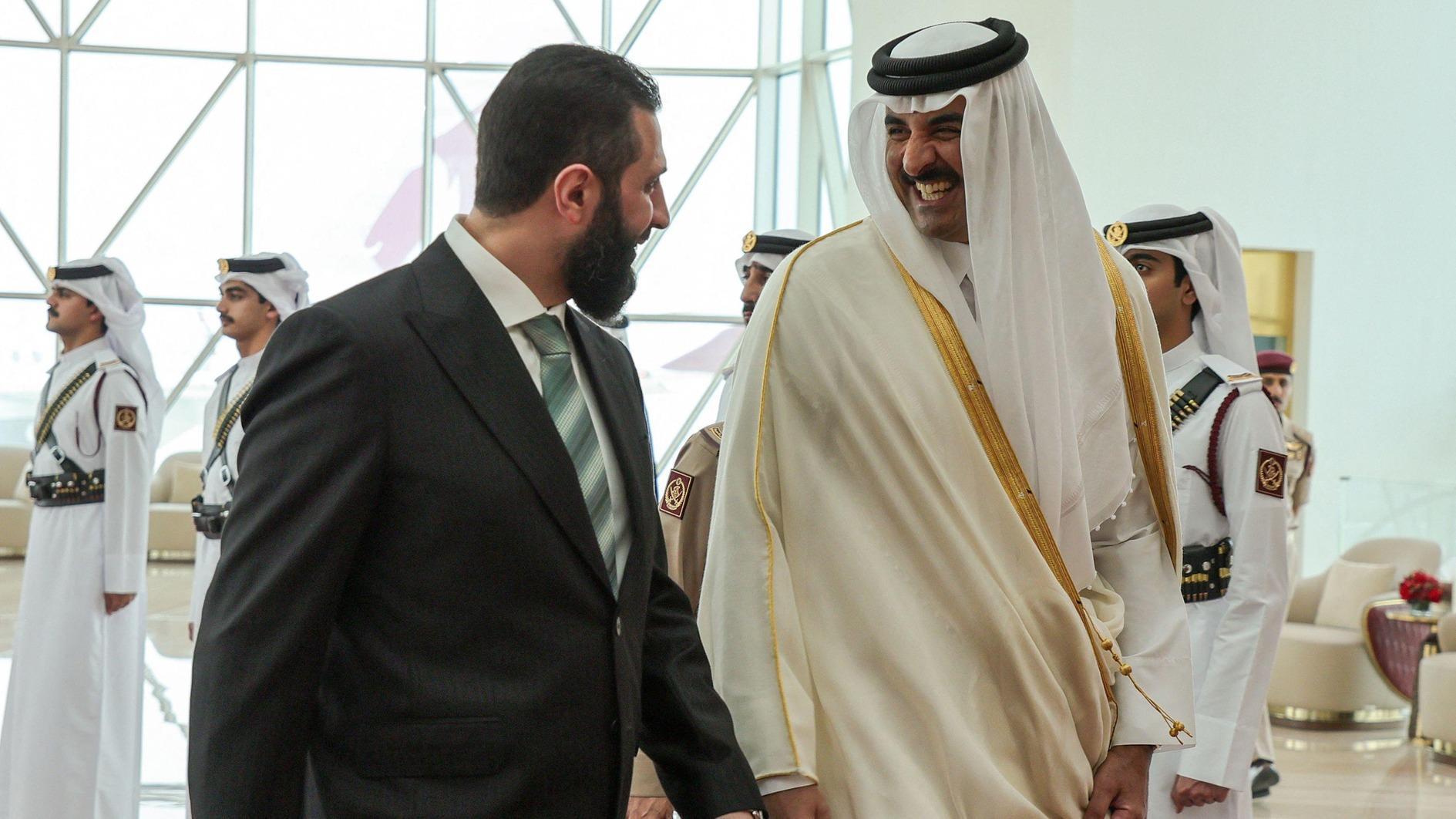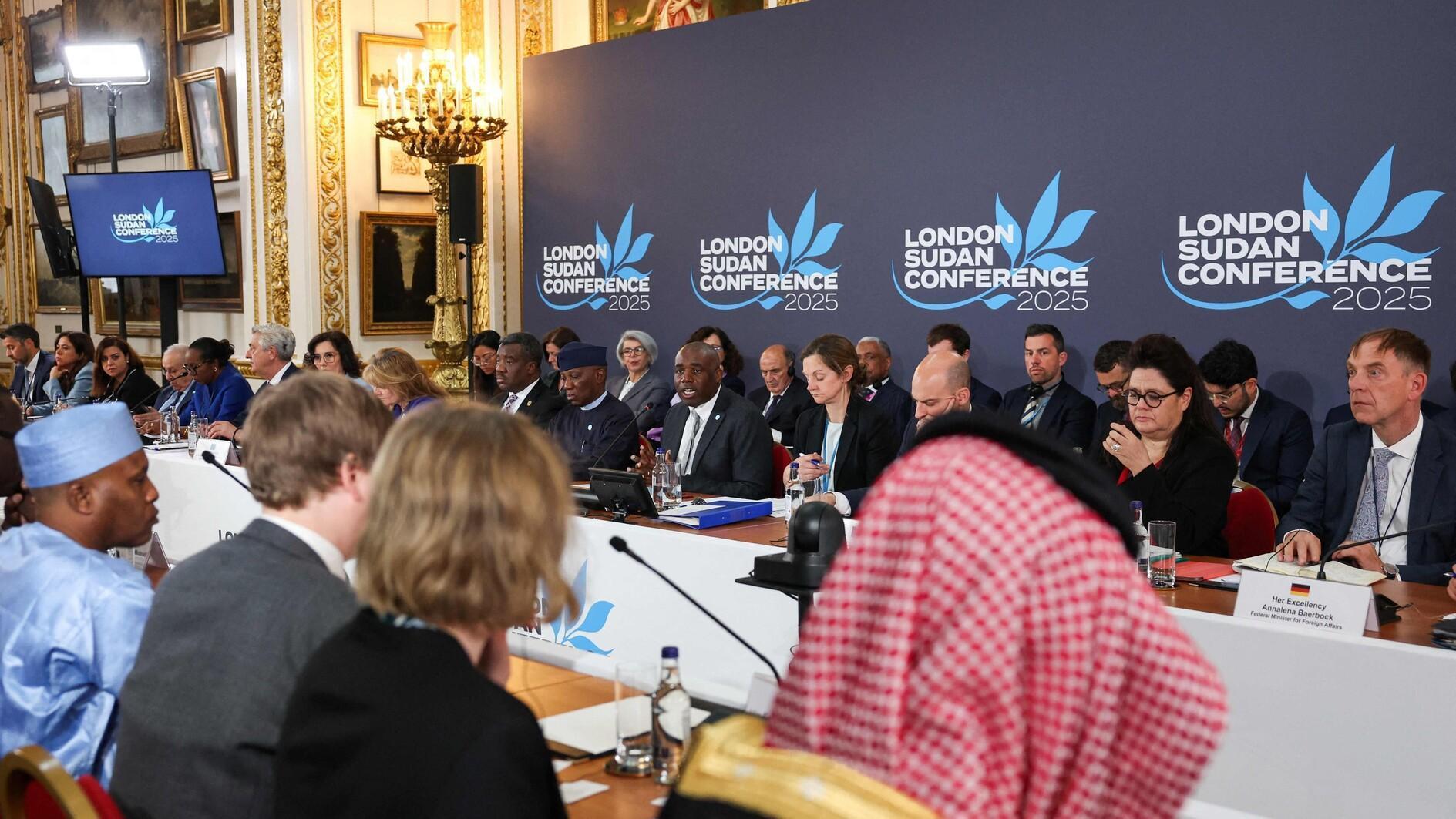West puts Russia in hot spot over Syria
BERLIN / DAMASCUS

German Chancellor Merkel (L) and Russian President Putin have a chat outside before official talks at the Chancellery in Berlin. REUTERS photo
Pressure to drop its resistance to tougher U.N. action on Syria mounted on Russia, as Russian President Vladimir Putin met with German Chancellor Angela Merkel and was scheduled to meet French President François Hollande on June 1, to reiterate Moscow’s stance.Putin said Syria could be on the brink of a civil war, but added that he was opposed to military intervention to stop the bloodshed. “You cannot do anything by force,” he told reporters in Berlin, after he and Merkel held talks in which they sought a “political solution” to the crisis.
“Today we are seeing emerging elements of civil war,” Agence France-Presse quoted him as saying. “It is extremely dangerous.” But he hit back at suggestions that Moscow was supplying arms for use in Syria, saying his country did not deliver weapons to be deployed in civil conflicts. “As far as arms supplies are concerned, Russia does not supply the weapons that could be used in a civil conflict,” he said. The Russian president was also scheduled to meet with Hollande, and the Syrian crisis was expected to dominate their agenda.
U.S. Secretary of State Hillary Clinton, speaking in Denmark, said Russia’s policy of resisting U.N.
Security Council action against Damascus was only increasing the chance of civil war erupting. The Russians “are telling me they don’t want to see a civil war. I have been telling them their policy is going [to] help to contribute to a civil war,” Clinton said.
Syria’s Houla report blatant lie: US
European diplomats are pressing for the U.N.’s top human rights body to propose a war crimes probe into last week’s killing of over 100 civilians in Syria, a move that would be fiercely resisted by Russia, but also is viewed with misgivings by other nations, including the United States. The U.S. lashed out against Moscow for arming the Syrian government and warned of the threat of civil war as it stepped up diplomatic pressure on President Bashar al-Assad. At the United Nations, U.S. Ambassador Susan Rice described Russian arms shipments to Syria as “reprehensible,” while accusing Damascus of a “blatant lie” by denying involvement in a massacre in which 108 people were killed. Clinton also charged June 1 that Russia has continued to supply arms to al-Assad, raising “serious concerns” in the United States.
Damascus insisted a preliminary investigation showed “armed gangs” carried out the Houla killings. “It appears that all the victims came from peaceful families who refused to rise up against the government or take up arms, but had rows with armed groups,” said Gen. Kassem Jamal Sleiman, the head of the probe. U.S. Defense Secretary Leon Panetta said any military action in Syria would need backing from the United Nations, but called recent violence “intolerable.” Asked if he could foresee a scenario in which the United States would back military intervention even without U.N. authorization, Panetta said, “No, I cannot envision that.”
















